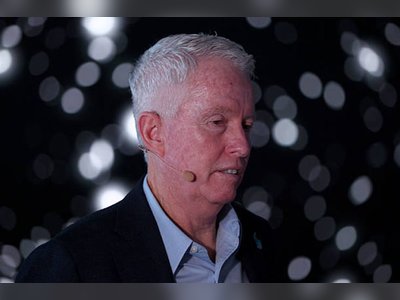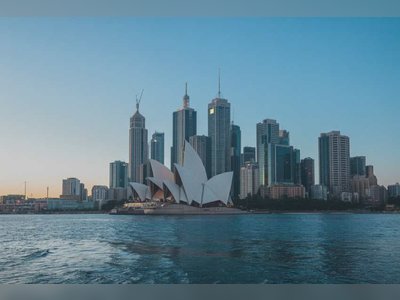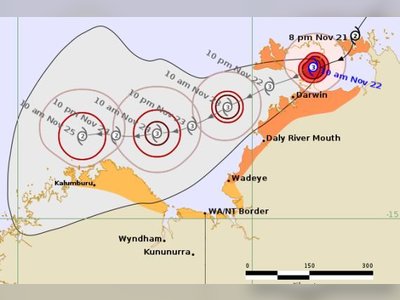Australia Set to Activate Landmark Under-Sixteen Social Media Ban Within Weeks
Beginning December ten, major platforms must block or deactivate accounts belonging to users under sixteen, with strict penalties for non-compliance
Australia is preparing to enforce its new nationwide restriction on social media access for children under sixteen, marking the final stages before the regulation takes effect on ten December.
The framework requires major platforms to identify and deactivate accounts held by anyone below the age threshold and to prevent new sign-ups until those users turn sixteen.
Authorities have stated that platforms must demonstrate they have taken reasonable steps to comply or face fines that can reach up to forty-nine point five million dollars.
The government has designated a core group of platforms for inclusion: Facebook, Instagram, TikTok, Snapchat, X, YouTube, Reddit, Twitch and Kick.
Officials note that the list may expand if additional services grow in popularity among young users or offer similar social interaction features.
By contrast, platforms such as YouTube Kids, Google Classroom, LinkedIn and Pinterest are exempt due to their educational focus, limited social features or specialised design.
Companies are now moving quickly to finalise their age-verification and enforcement systems.
Meta has indicated it will use a combination of internal signals and external tools to determine which accounts appear to belong to users under sixteen.
It will allow those teens to download their photos and messages, either place their accounts on hold until their sixteenth birthday or delete them entirely.
Snapchat has outlined similar measures, including a locked or frozen account state, while TikTok has committed to a multi-layered age-assurance approach and the option for users to archive their content.
People who are over sixteen but mistakenly identified as underage will be able to appeal.
Meta plans to use either government identification or a video-based facial age-assurance check, while other platforms have yet to detail their processes.
Authorities emphasise that platforms must offer a clear and accessible way for users to contest incorrect decisions.
Several companies have signalled they will comply with the law, though discussions about potential legal challenges continue.
YouTube has publicly considered seeking a high court review but has not yet begun proceedings.
A state legislator has also indicated plans to challenge the policy on constitutional grounds.
For now, the government remains firm that enforcement will begin as scheduled and expects all designated platforms to meet the requirements in time.
The framework requires major platforms to identify and deactivate accounts held by anyone below the age threshold and to prevent new sign-ups until those users turn sixteen.
Authorities have stated that platforms must demonstrate they have taken reasonable steps to comply or face fines that can reach up to forty-nine point five million dollars.
The government has designated a core group of platforms for inclusion: Facebook, Instagram, TikTok, Snapchat, X, YouTube, Reddit, Twitch and Kick.
Officials note that the list may expand if additional services grow in popularity among young users or offer similar social interaction features.
By contrast, platforms such as YouTube Kids, Google Classroom, LinkedIn and Pinterest are exempt due to their educational focus, limited social features or specialised design.
Companies are now moving quickly to finalise their age-verification and enforcement systems.
Meta has indicated it will use a combination of internal signals and external tools to determine which accounts appear to belong to users under sixteen.
It will allow those teens to download their photos and messages, either place their accounts on hold until their sixteenth birthday or delete them entirely.
Snapchat has outlined similar measures, including a locked or frozen account state, while TikTok has committed to a multi-layered age-assurance approach and the option for users to archive their content.
People who are over sixteen but mistakenly identified as underage will be able to appeal.
Meta plans to use either government identification or a video-based facial age-assurance check, while other platforms have yet to detail their processes.
Authorities emphasise that platforms must offer a clear and accessible way for users to contest incorrect decisions.
Several companies have signalled they will comply with the law, though discussions about potential legal challenges continue.
YouTube has publicly considered seeking a high court review but has not yet begun proceedings.
A state legislator has also indicated plans to challenge the policy on constitutional grounds.
For now, the government remains firm that enforcement will begin as scheduled and expects all designated platforms to meet the requirements in time.
AI Disclaimer: An advanced artificial intelligence (AI) system generated the content of this page on its own. This innovative technology conducts extensive research from a variety of reliable sources, performs rigorous fact-checking and verification, cleans up and balances biased or manipulated content, and presents a minimal factual summary that is just enough yet essential for you to function as an informed and educated citizen. Please keep in mind, however, that this system is an evolving technology, and as a result, the article may contain accidental inaccuracies or errors. We urge you to help us improve our site by reporting any inaccuracies you find using the "Contact Us" link at the bottom of this page. Your helpful feedback helps us improve our system and deliver more precise content. When you find an article of interest here, please look for the full and extensive coverage of this topic in traditional news sources, as they are written by professional journalists that we try to support, not replace. We appreciate your understanding and assistance.










